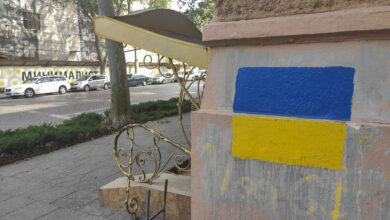EU leaders meet in Prague to discuss energy crisis

Prague, Oct 7 (EFE).- The European Union is “well prepared” to face the energy crisis driven by the Russian war on Ukraine, European Commission president Ursula von der Leyen said Friday.
“Now we are well prepared, we have a first line of protection for our market, now it is time to discuss how we can limit the peaks in the energy prices and the manipulation of energy prices by Putin,” von der Leyen told reporters ahead of the second day of an informal European summit taking place in Prague to discuss energy prices and the war in Ukraine.
The Commission chief added that EU leaders would discuss price caps on Russian gas exports.
“The Russian war has an impact on the global economy and we are going to discuss that today too, mainly through the energy crisis and the energy scarcity.
“Russia has deliberately and systematically cut gas supply to the European Union but we have been able to compensate,” she said.
Von der Leyen added leaders would also discuss the EU single market and the “level playing field”.
“So that all businesses have the same opportunity to participate in the single market, they can compete through quality but not through subsidies,” she said.
Meanwhile, the EU’s top diplomat Josep Borrell said energy was becoming the most important geostrategic problem of our times.
Borrell said that the oil market has until now functioned as an oligopoly, but that with the latest EU package of sanctions against the Kremlin, the Organisation of the Petroleum Exporting Countries (OPEC) has had to reduce their supply.
“This means that energy is becoming the most important geostrategic issue today, related to war but also to the balance of power in the world,” he told reporters in Prague.
EU leaders are meeting in Prague to try and reach an agreement to impose a price cap on Russian gas prices, although there are still disagreements between those who want to limit the price of all imports from Russia and third countries and those who reject the idea.
Spain, France, Italy and Belgium are among those who agree on a price cap on all imports while Germany and the Netherlands are against the measure. EFE
int/mp/ks





